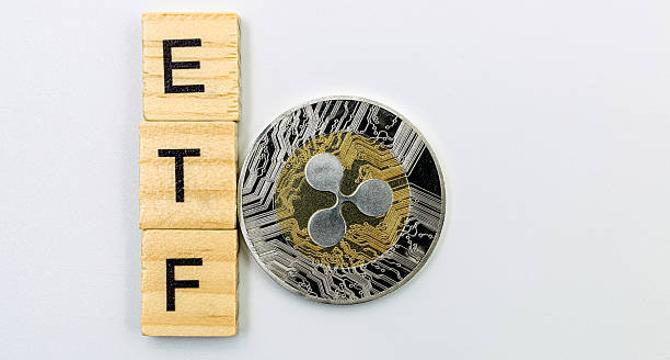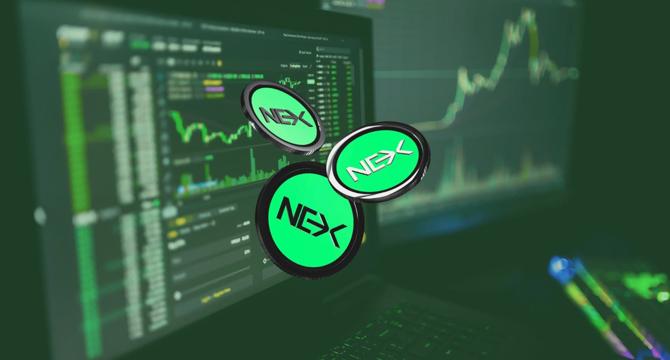DeFi News
Blockonomi
39

Image Credit: Blockonomi
SOL Price Eyes Rebound as Maple Finance Deploys on the Solana Network
- SOL price shows a mild rebound despite trading below key moving averages.
- Maple Finance expands to Solana, launching syrupUSD via Chainlink CCIP with $30M in initial liquidity.
- Solana’s DeFi TVL surges to $8.4B, driven by rising platform activity and new lending protocols.
- Traders eye $142 support as SOL nears oversold levels; rumors of a $1B token launch spark caution.
Read Full Article
2 Likes
TheNewsCrypto
92

OKX Ventures Invests in Momentum, a Leading Sui-Based DEX
- OKX Ventures has invested in Momentum, a fast-growing DEX on the Sui network.
- Momentum processes $3B in volume and holds $70M TVL within two months.
- Platform offers 10x performance over traditional AMMs with ve(3,3) mechanics.
- Momentum, a DEX on the Sui blockchain, attracts significant volume and liquidity, offering high-performance DeFi experience endorsed by OKX Ventures.
Read Full Article
5 Likes
Global Fintech Series
233

Image Credit: Global Fintech Series
YZi Labs and Galaxy Ventures-Backed Plume Unveils $150 Million Genesis Mainnet to Pioneer RWAfi Ecosystem
- Plume Network, the purpose-built ecosystem for real world asset finance, has launched Plume Genesis, its public mainnet.
- Plume Genesis introduces true DeFi composability with real world assets, showcasing onchain institutional-grade assets and over $150 million in utilized capital across various use cases.
- The ecosystem includes well-known DeFi applications and Plume is onboarding over $4 billion in assets, reimagining real world assets as composable yield-bearing primitives.
- Plume Genesis also brings features like Plume Portal, Yield-Bearing RWAfi Assets, Royco, $PLUME Token Utility, and Cross-Chain RWA Yields, enabling increased access and utility for users.
Read Full Article
14 Likes
Cryptonews
361

Maple Finance Takes syrupUSD to Solana with $30M Thrust to Supercharge DeFi Lending
- Maple Finance expanded its yield-bearing stablecoin, syrupUSD, onto Solana through platforms Kamino and Orca, injecting initial liquidity of US$30M.
- Maple's entry into the Solana ecosystem aims to establish robust liquidity conditions, enabling enhanced lending, trading, and collateral activities.
- Maple's expansion to Solana was facilitated by Chainlink’s Cross-Chain Interoperability Protocol (CCIP), allowing seamless communication between Ethereum and Solana virtual machines.
- Maple Finance's strategic move to tap into Solana's high-speed environment puts it in direct competition with major Solana lending protocols like margin.fi, Rain.fi, and Port Finance.
Read Full Article
21 Likes
TronWeekly
405
Image Credit: TronWeekly
Plume Network Mainnet Goes Live with $150 Million in On-Chain Real-World Assets
- Plume Network has launched its mainnet with $150 million in tokenized real-world assets on-chain.
- The Layer 2 blockchain supports DeFi access to assets like credit, debt, and solar farms.
- Over 200 projects, including Curve and Morpho, are already building on Plume's RWAfi network.
- The company, backed by investors like Apollo Global and Haun Ventures, aims to broaden the digital asset tokenization market by allowing traditional assets to interact with DeFi protocols.
Read Full Article
24 Likes
Cryptonews
189

Ethereum Foundation Announces New Treasury Policy for Critical 2025-26 Period
- The Ethereum Foundation is revamping its treasury strategy following community criticism over unexpected ETH sell-offs.
- Quarterly and annual reports will be published detailing asset allocations, investment returns, and operational developments for increased transparency.
- EF plans to use ETH reserves more dynamically, including solo staking and depositing wrapped Ether into DeFi lending protocols for yield generation.
- The new direction aims to provide decisive ecosystem support, especially during market downturns or critical phases, aligning short-term actions with Ethereum's long-term vision.
Read Full Article
11 Likes
Pymnts
92

Image Credit: Pymnts
Keeta and SOLO Launch Blockchain-Native Credit Bureau
- Keeta and SOLO have launched a blockchain-native credit bureau in partnership.
- SOLO's 'PASS' digital certificate consolidates financial credentials for lending and on-chain financial reputation.
- The collaboration aims to make an on-chain credit system accessible to various entities like crypto builders, venture capital firms, and banks.
- The partnership plans to launch verified profiles, lending marketplace, stablecoin-based loan origination, and bank integrations.
Read Full Article
5 Likes
Bitcoinist
260

Image Credit: Bitcoinist
Chinese Company Moves To Buy $300 Million Worth Of XRP, SEC Filing Shows
- Chinese company Webus plans to establish a $300 million XRP treasury, as per a recent SEC filing.
- Webus has signed a digital-asset management agreement and is exploring various financing options for the XRP reserve.
- Another company, VivoPower, is also working on establishing an XRP Treasury with the help of BitGo.
- The likelihood of an XRP ETF launching this year has significantly increased, with Polymarket data suggesting a high chance of approval by the SEC.
Read Full Article
15 Likes
Hackernoon
304

Image Credit: Hackernoon
Blockchain Platform Obyte Rolls Out Incentivized Virtual World to Rebuild User Network
- Obyte, facing a weak community engagement, launched Obyte City to strengthen connections among users and boost cooperation and collective action.
- Obyte City is a virtual space with 1 trillion plots where users can buy plots, receive rewards for connecting with neighbors, and engage in community building activities.
- Users who connect with neighboring plot owners receive rewards and establish closer connections by coordinating reward claims through discord or telegram.
- Users can customize their plots and houses, link them to social profiles, and even trade unique shortcodes associated with their houses.
- Plots in Obyte City can only be purchased with CITY tokens, and new CITY tokens are minted for rewards while burned for plot purchase fees.
- The initial sale of plots will run from June 3 to June 30, 2025, with plots priced at 1 GBYTE and including CITY token bonuses for buyers.
- Obyte City operations are handled by autonomous agents on the Obyte DAG, ensuring secure, immutable transactions without the ability for arbitrary changes.
- Change in City parameters can be done through governance, with plot owners having voting power based on their CITY holdings in plots.
- Referral rewards are offered to users who bring new participants to Obyte City, encouraging community expansion and stronger ties.
- Obyte aims to revitalize its community through Obyte City and other engagement tools, leveraging its technology for a more interconnected user base.
Read Full Article
18 Likes
Global Fintech Series
404

Image Credit: Global Fintech Series
Burstverse Secures Seed Funding to Advance DeFai with AI-Driven Decentralized Finance Platform
- Burstverse secures seed funding to advance DeFai with AI-Driven Decentralized Finance Platform.
- The seed funding attracted investors such as Borderless Capital, Bigbrain Holdings, and others.
- Burstverse aims to simplify DeFai and CeFi interactions through AI technology for activities like token swaps and staking.
- The funding will accelerate product development, team expansion, and the launch of Burstverse Beta.
Read Full Article
22 Likes
TronWeekly
318

Image Credit: TronWeekly
Dogecoin (DOGE) Poised for Explosive Bullish Breakout Amid DeFi Expansion
- Dogecoin is showing bullish momentum after breaking out of a falling wedge pattern, potentially leading to a parabolic rally if it closes above $0.26.
- The launch of wrapped DOGE (wDOGE) on Coinbase's Base network expands DOGE’s utility in DeFi and smart contracts, signaling increased adoption.
- The odds of a U.S. spot DOGE ETF approval by 2025 have surged to 74%, driving higher institutional interest in Dogecoin.
- Despite a short-term dip in price, Dogecoin (DOGE) is trading at around $0.1904, with significant institutional engagement and potential for a bullish surge.
Read Full Article
19 Likes
Bitcoinsensus
172

Image Credit: Bitcoinsensus
Ethereum Foundation Clarifies Treasury Policy
- Ethereum Foundation has clarified its treasury policy focusing on DeFi yield and Defipunk.
- A two-factor liquidity model has been formalized for the first time with targets of A = 15% of the treasury and B = 2.5 years, aiming to cut A to 5% by 2030.
- ETH assets are allocated between core strategies and segregated sleeves with higher risk, emphasizing on-chain placements and the Defipunk checklist.
- This move towards transparency and sustainable development by the Ethereum Foundation is crucial for the future of DeFi ecosystem.
Read Full Article
10 Likes
Global Fintech Series
376

Image Credit: Global Fintech Series
Introducing DMind and DMind-1: Web3-Native AI for the Future of Digital Finance
- DMind.ai is an open-source AGI research organization focused on developing AI infrastructure tailored for digital finance, starting with Web3 technologies.
- DMind-1 is a Web3-native expert language model released by DMind.ai, providing enhanced accuracy and reasoning in complex crypto topics at a fraction of the cost of general-purpose models.
- DMind.ai introduced the DMind Web3 Benchmark, a comprehensive evaluation standard for Web3-specific reasoning, which quickly became popular in the industry.
- DMind's dedication to open-source research, data curation, and community-driven innovation sets it apart, with plans for future model development and building a global network of developers and researchers in the digital finance sector.
Read Full Article
22 Likes
Hackernoon
84

Image Credit: Hackernoon
Nexchain Token Presale: Get Early Access to the Future of Web3
- Nexchain Token Presale is offering daily revenue to NEX holders by providing 10% of generated gas fees.
- Nexchain's AI-powered blockchain structure encourages long-term engagement and sustainability within its ecosystem.
- The NEX coin is under presale, with a current price of $0.062, expected listing price of $0.3, and high ROI potential based on real-world applications.
- Nexchain's tokenomics ensure sustainability through a balanced allocation for network expansion, community benefits, and development, making it an attractive opportunity for early investors.
Read Full Article
5 Likes
Tokenhell
200

Image Credit: Tokenhell
Big Business and Governments Tap Ethereum for Financial Innovation
- Ethereum is being utilized by big businesses and governments for financial innovation, with the blockchain serving as the base layer for international finance through digital treasuries.
- Public bodies are also exploring Ethereum for various purposes, such as bond transactions, real estate information management, and citizen identification systems.
- Ethereum's dominance is evident in the real-world asset space, with tokens for RWAs totaling $9.8 billion on the network, exceeding other platforms by fourfold.
- Recent data shows a significant decrease in ETH exchange inflows, indicating reduced selling activity or a wait-and-see approach among traders.
Read Full Article
11 Likes
For uninterrupted reading, download the app